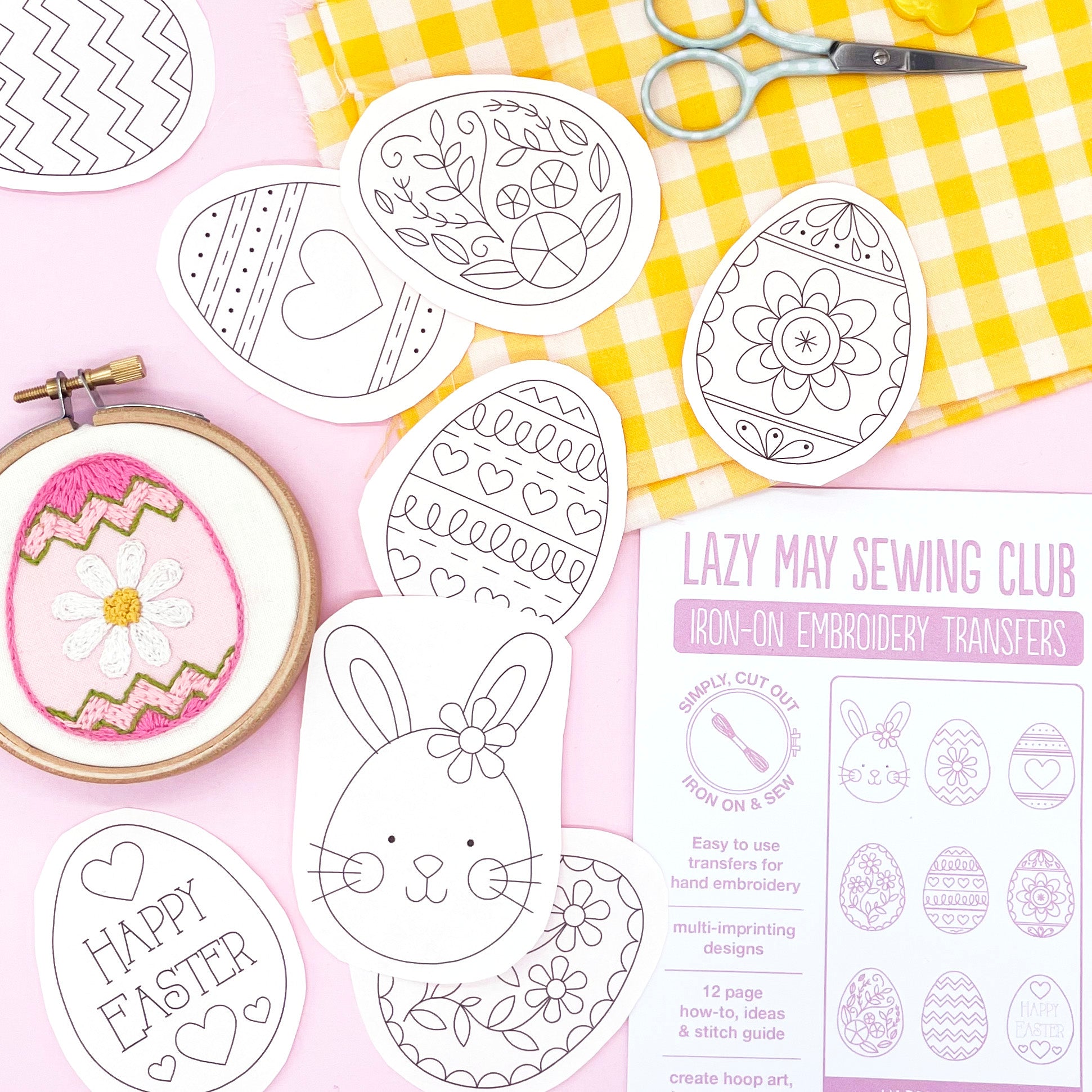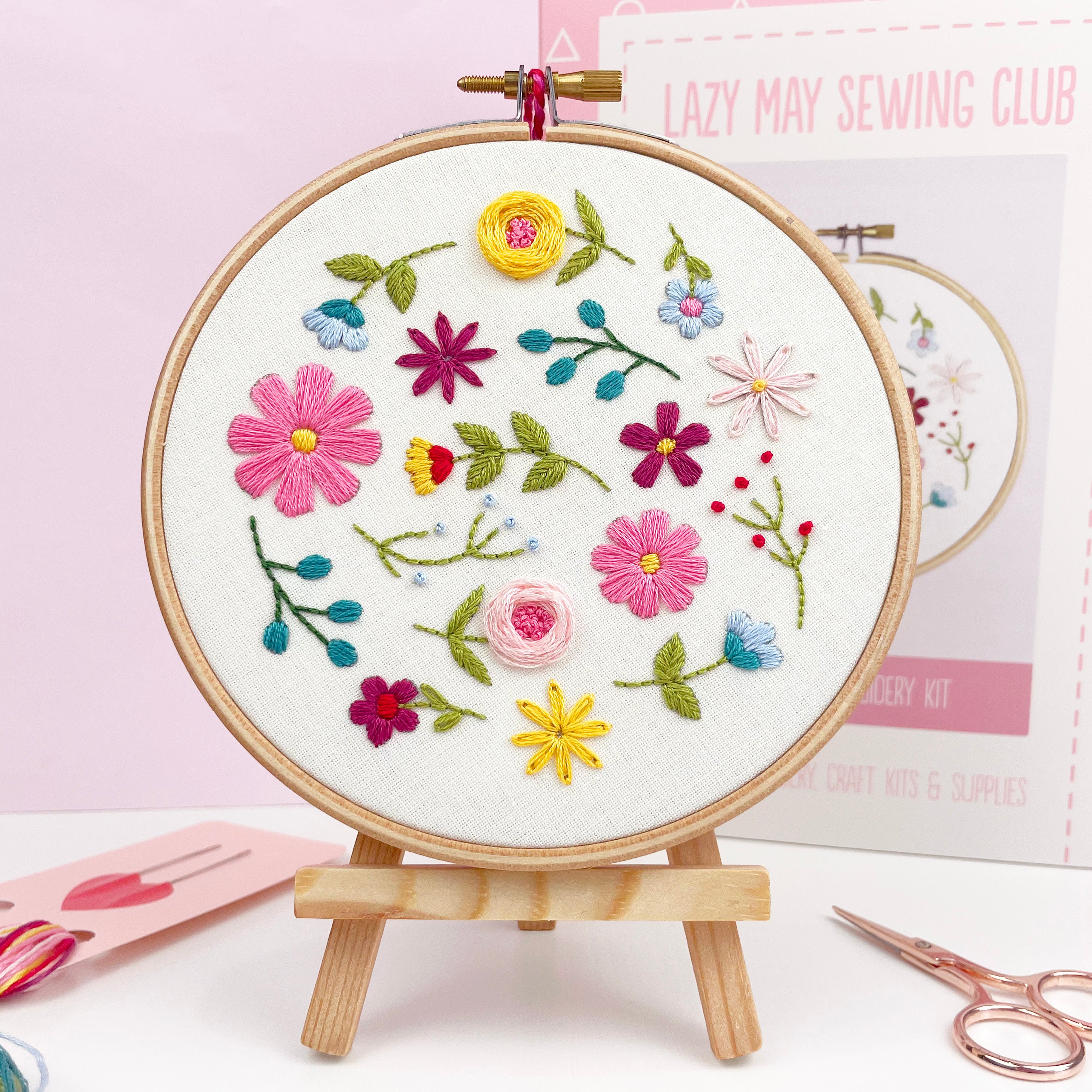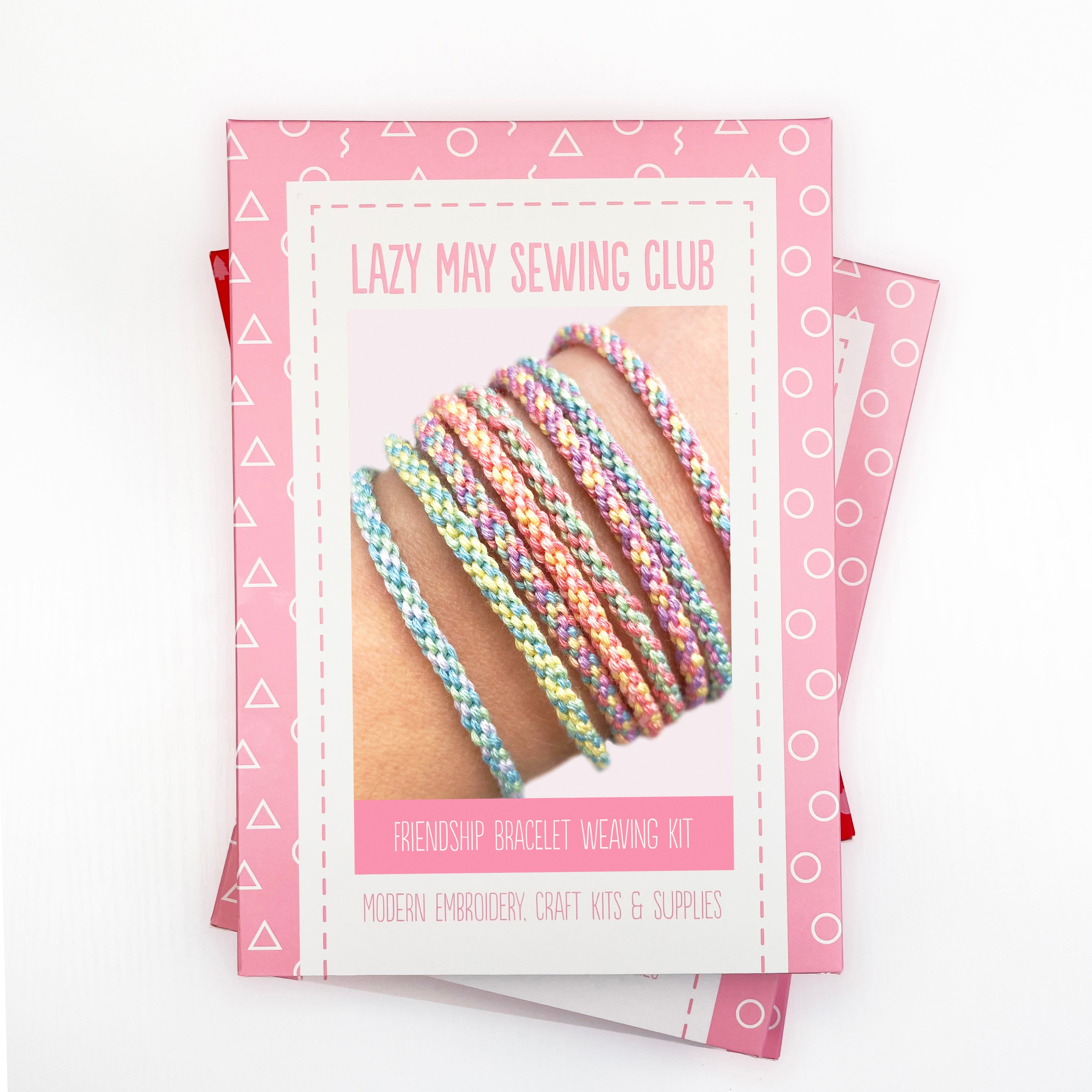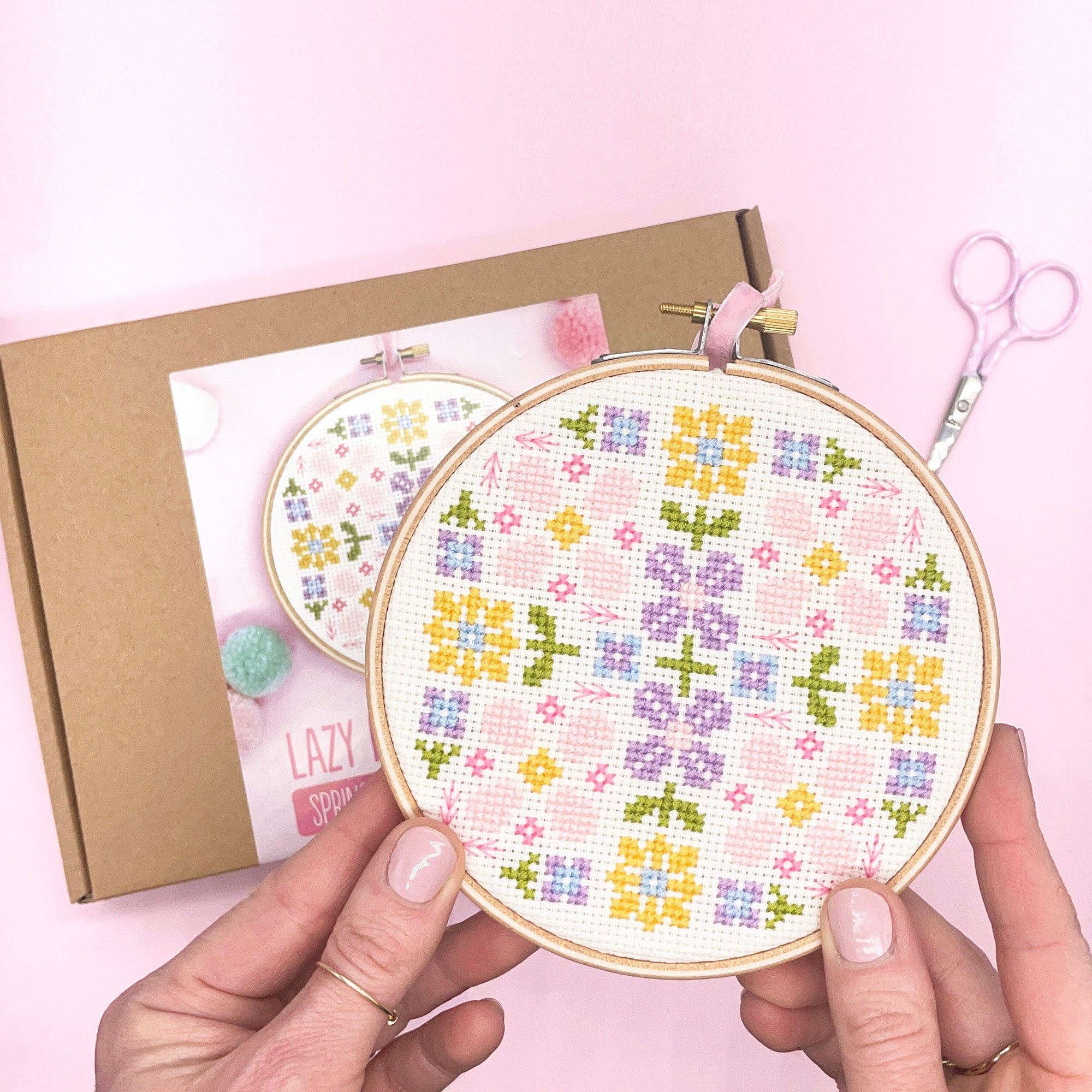Overcome your fear of French knots! By the end of this project you will be a pro!
People often tell me of their dislike of french knots, however, once you get the hang of them they can be a really useful (even relaxing!!) stitch to have in your tool box.
French knots are brilliant for embroidering flower seeds, animal eyes and great for adding texture.
You can see a few examples below of their different uses and effects.



Notes about this article:
In this project I will talk you through french knots in detail.
If you need guides to any of the processes mentions here such as setting up your hoop or separating thread you will find all this information and more on our 'Beginners Embroidery Guide' pages.
Simply click below to visit if you need help.
French Knot Alphabet Hoop: Step by Step

You will need:
- School Letters Embroidery Transfers
- 3" Embroidery Hoop
- 20cm square white cotton
- 20cm square pink cotton
- 6 stranded embroidery thread in the following pastel colours, pink, light pink, purple, blue, peach, yellow
- Needle, scissors, iron
Preparation:
Follow the pack instructions to transfer your chosen letter on to the pink fabric, ensure it is placed centrally.
Mount both the white and pink fabrics in your embroidery hoop, ensuring the letter is central in the hoop. Pull the fabric taut and tighten the gold screw.
Stitching Notes:
Step One:
Begin by threading your needle with 4 strands of pink thread.
Use the detailed guide below and place french knots at random along the outline of the letter and a few outside. Continue until it looks roughly like this photo.

How to do a French Knot
This project is stitched with one single stitch, you might have guessed which one, yes the french knot!
French Knot Step One:
Cut an arms length of thread and thread your needle and tie a simple knot in the free end.
Bring your needle up through the fabric from the back and pull it taut.
Now hold your needle horizontally just above the fabric.
Wrap the thread over the needle twice, bring it over the needle first and then under, as shown in the photo.

French Knot Step Two:
Now push the point of your needle back down in to the fabric making sure you create NEW hole in the fabric, don't use the one that the thread has come up through.
Gently keep tension on the thread using your left hand at the same time.

French Knot Step Three:
Push the needle further into the fabric, still keeping tension on the thread.
Move your right hand to the reverse of the hoop and pull the needle and thread all the way through to the back. Keep tension on the loop at the front of the hoop until it is really small.

French Knot Step Four:
Once the loop at the front of the hoop becomes small you can release the tension and carefully pull all the thread to the back of the hoop.

French Knot Step Five:
Your completed french knot should look like this.

Below you can see an illustrated version of how to do a french knot.

Step Two:
Now use 4 strands of yellow thread to repeat the process.
Place french knots at random along the outline of the letter and a few outside. Continue until it looks roughly like this photo.

Step Three:
Now use 4 strands of peach, blue and purple thread to repeat the process.
Place french knots at random along the outline of the letter and a few outside. Continue until it looks roughly like this photo.

Step Four:
Finally use 4 strands of light pink thread to fill in any remaining spaces.
Place french knots at random along the outline of the letter and a few outside. Continue until it looks roughly like this photo.

Step Five:
Once you have completed all the french knots (don't try to count them!), turn your hoop over and trim away the white fabric only.
Then trim the pink fabric in a rough circle the is about 2cm bigger than your hoop.

Step Six:
Thread your needle with 2 strands of thread and work your way around the edge of the circular fabric with running stitch.

Step Seven:
Pull the ends of your running stitches tight and tie in a double knot.
Yay! Your project is complete!


I hope you have gathered some embroidery inspiration from this article and are keen to have a go at creating your own embroidery designs using iron on embroidery transfer patterns.





